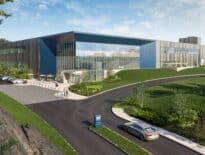The state’s biggest biotech landlords may be hitting pause on new developments or, in some cases, abandoning projects entirely. But those headlines haven’t dampened the nonprofit arm of the Massachusetts Biotech Council from predicting a 32 percent growth in the number of jobs in the industry in the next nine years.
In a new report issued Wednesday the Massachusetts Biotechnology Education Foundation, or MassBioEd, said it believes the state will add around 42,000 new biotech jobs by 2032, based on an analysis of past employment trends.
The state has grown its biotech workforce by 14.9 percent since 2019, the report said, as ultra-low interest rates and a wave of scientific breakthroughs helped power many companies to rapidly expand their headcount. While most major types of jobs saw employment growth, the biggest gains occurred among researchers (2,700 new positions added, or 13 percent growth), managers (5,600 new jobs, up 38 percent), IT workers (3,800 new jobs, or 52 percent growth) and business and financial workers (3,000 new jobs, representing 40 percent growth).
That growth in researchers also happened as they became more concentrated in Massachusetts. And while total numbers of biotech workers involved in production and manufacturing of products like new medicines is still a relatively small share of the local industry workforce, the number of people in those roles locally grew 37 percent since 2019 as more biotech firms looked to bring some of their supply chain closer to research labs.
The MassBioEd report projects 6,617 local life science job openings per year over the next decade, but an average annual output from the state’s colleges and universities only half that, suggesting that Massachusetts will still need to attract many migrants from other states or countries to keep its biotech industry growing.
The report includes no statistics from 2023, but noted that despite the rapid slowdown seen in demand for biotech space in the latter half of 2022 and the start of this year – Newmark reported that the first quarter of 2023 saw 177,884 square feet of negative absorption and a vacancy rate jump from 6 percent to 7.3 percent – Massachusetts life science industry job postings jumped 71 percent.
Tenant requirements for around 2 million square feet are in line with pre-pandemic industry averages, Newmark said, but the collapse of Silicon Valley Bank and a curtailing of industry IPOs suggests the life science industry’s fundamentals will remain “challenged” for the next year.







